Cultivating Change: Bridging Education & Ecology through Experiential Learning in Colombia
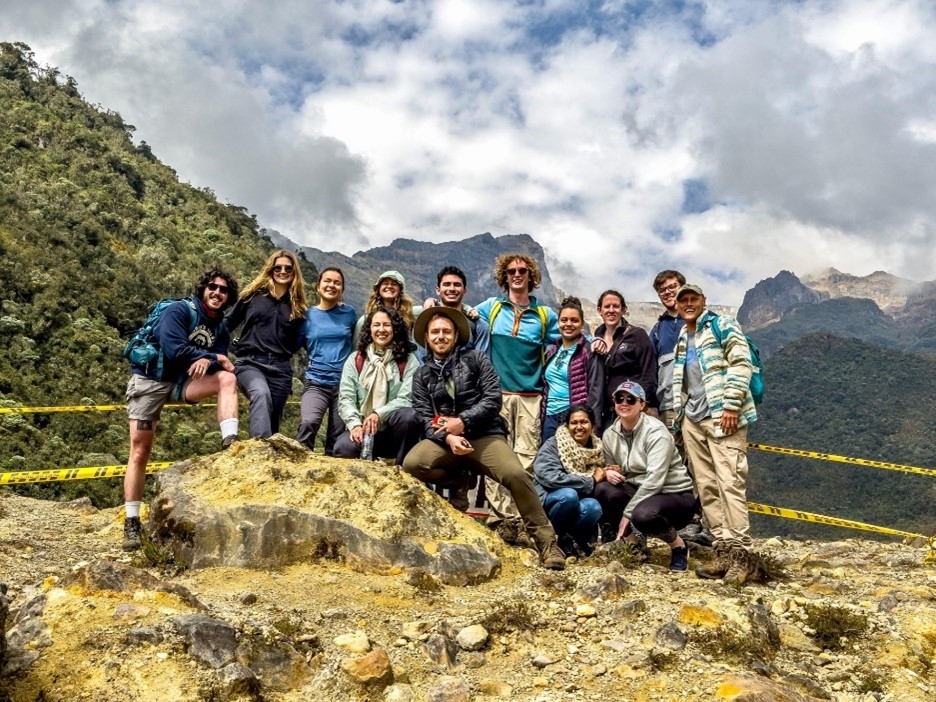
Environmental Policy student, returned Peace Corps volunteer, and AmeriCorps alumnus, Kevin Heller, shares his first-hand experiences on an experiential learning course offered in Colombia over spring break.
In rural Colombia, dawn arrives with a symphony of nature’s sounds, the air rich with the scent of earth and blooms. Verdant landscapes, splashed with the colors of wildflowers and coffee plants, stretch out under a golden sunrise. The murmur of streams and the calls of exotic birds blend with the rustle of leaves, enveloping the senses in the land’s beauty. Here, nature awakens every sense, offering a pure, vibrant essence of life.
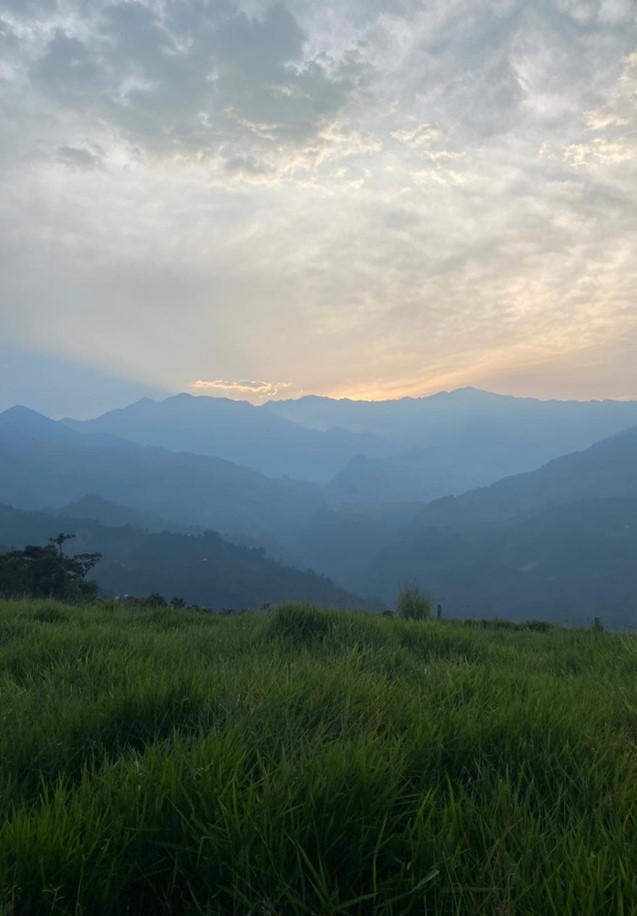
It might have been just another class or merely a spring break getaway. Yet, our experience in the Sustainable Development and Ecological Restoration in Rural Colombia course transcended the traditional bounds of academic learning. Our collaborative venture with Quinta Esencia Taller and the vibrant community of Líbano marked a foray into a world where education met action, culture intertwined with conservation, and the past informed a more sustainable future.
This wasn’t just about academic enrichment; it was a journey rooted in mutual respect and shared growth
This expedition, set against the backdrop of Colombia’s journey to find its new post-conflict identity, delved deep into the realms of sustainable tourism and biodiversity. Colombia, a country ripe with ecological treasures, stands at a crossroads, aiming to move beyond the limitations of monocropping by harnessing its rich biodiversity and potential for sustainable tourism. Our venture was more than a field trip; it was a step into the heart of ecological restoration, with Quinta Esencia Taller at the helm, guiding us from sustainable coffee farming to a broader ecological restoration mission.
The most memorable part for me was definitely going up Nevado del Ruiz (an active volcano) and being able to take a dip in the hot spring pools.
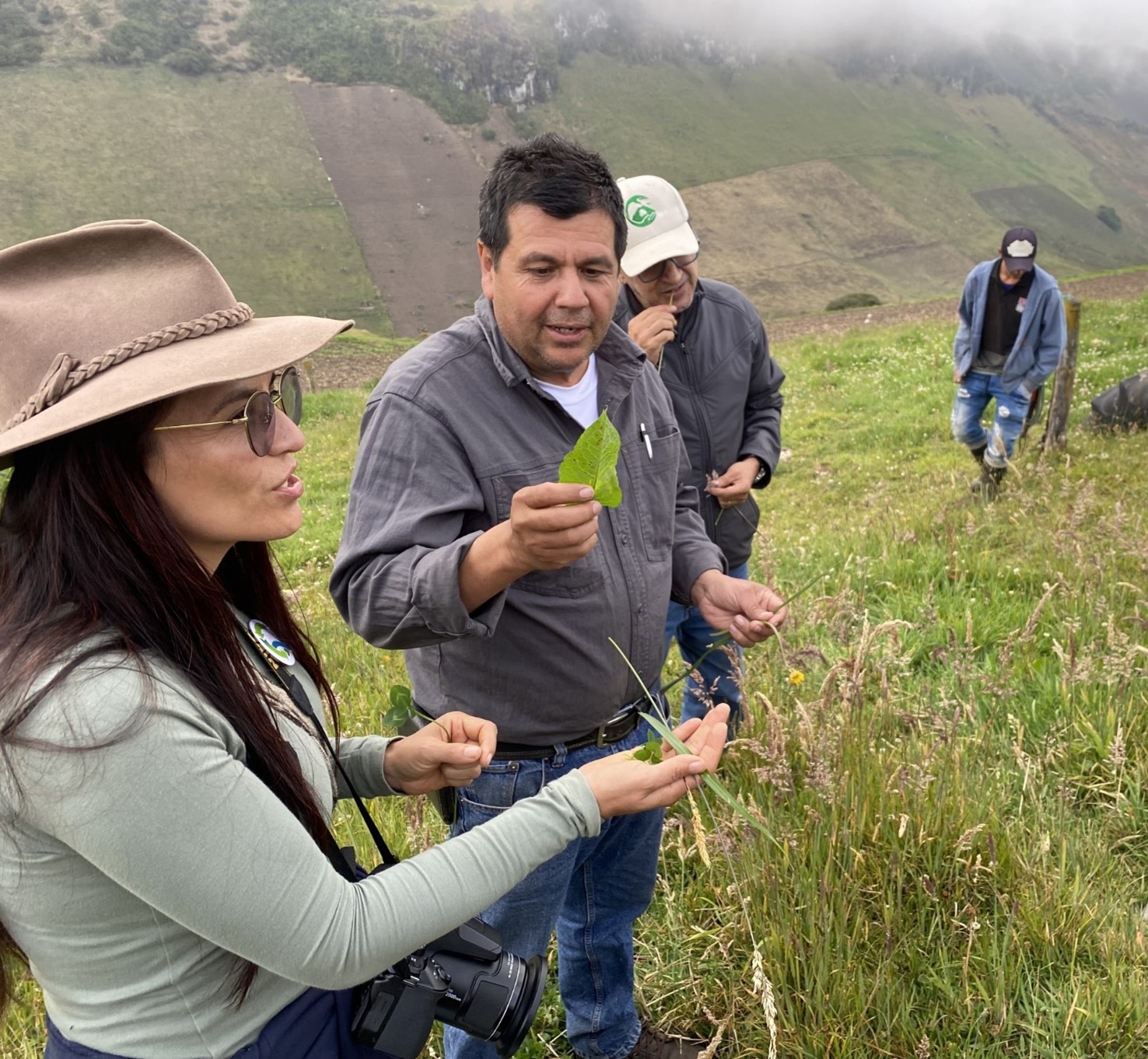
Our course was designed as a hybrid model, merging environmental science, intercultural competence, and language immersion to foster a holistic understanding of sustainable development. This unique approach facilitated our engagement with diverse stakeholders, including private landowners, community-based organizations, and local schools, thus enriching our learning experience with a multiplicity of perspectives and insights.
The significance of our engagement in Líbano was magnified by the profound relationships we built with the community members. This wasn’t just about academic enrichment; it was a journey rooted in mutual respect and shared growth. One such encounter that epitomized this deep connection was our visit to a finca (farm/ranch) high in the mountains close to Los Nevados National Park. Julián and Sarita, with their boundless hospitality, shared not just their home but also their vision of freedom through sustainable agriculture. Julian’s mantra, “food is freedom,” resonated deeply, echoing the core values of our course and the transformative potential of understanding and respecting our food sources.
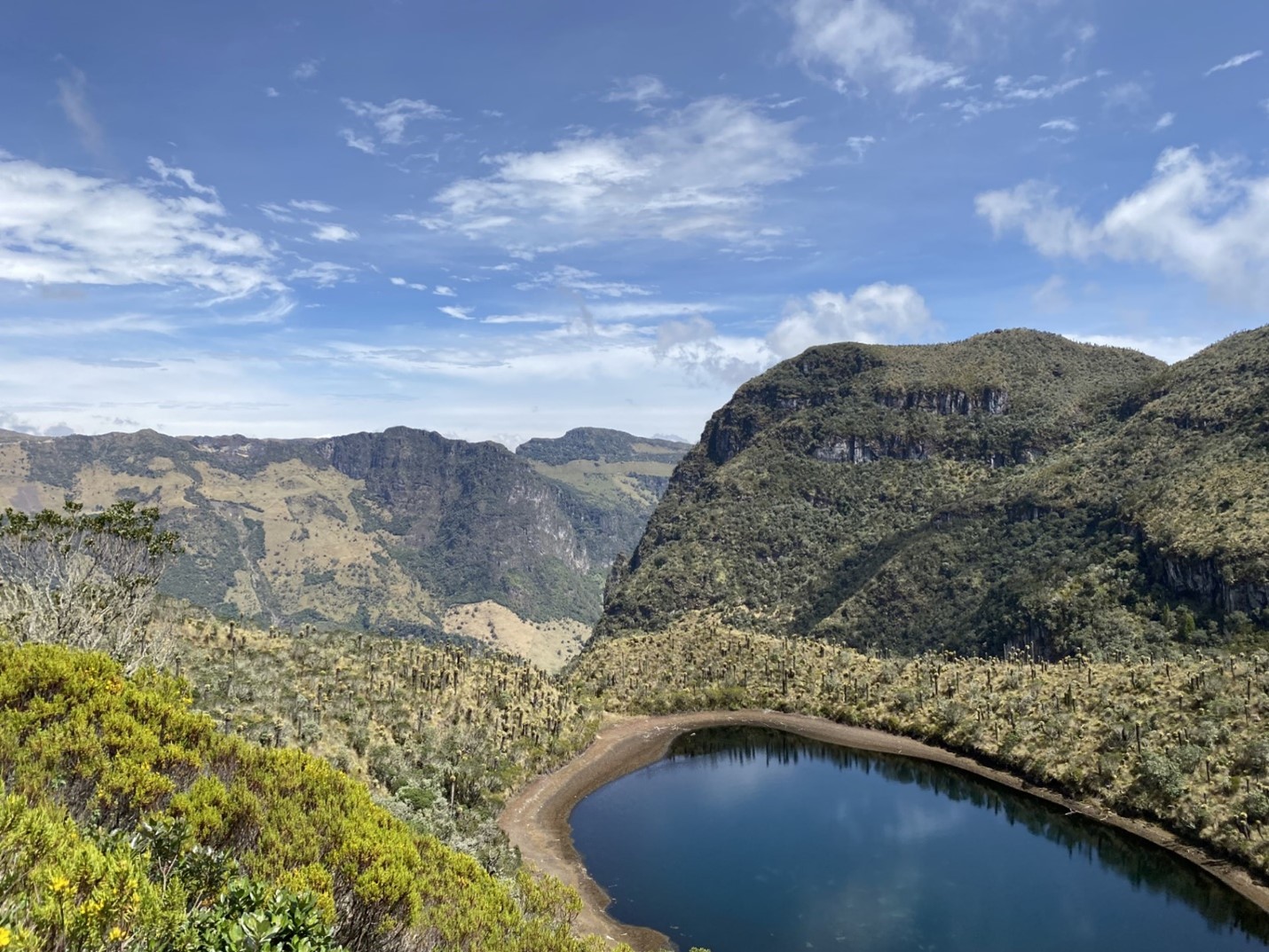
Another memorable experience was our visit to “Finca Pensar,” where the delicate balance of sustainable coffee production was unveiled by Don Antonio, a former diplomat turned coffee advocate. Working alongside the laborers, even if just for an hour, provided a tangible connection to the coffee that reaches our cups, illustrating the global interconnections of our food systems and the human effort that fuels them.
These experiences, reflective of my prior Peace Corps service in Mexico, underscored the importance of language and cultural immersion as tools for building bridges. Whether through professional collaborations or personal friendships, the ability to communicate in Spanish opened doors to richer, more meaningful interactions, reminding me of the profound impact of empathy and curiosity in fostering understanding and connection.
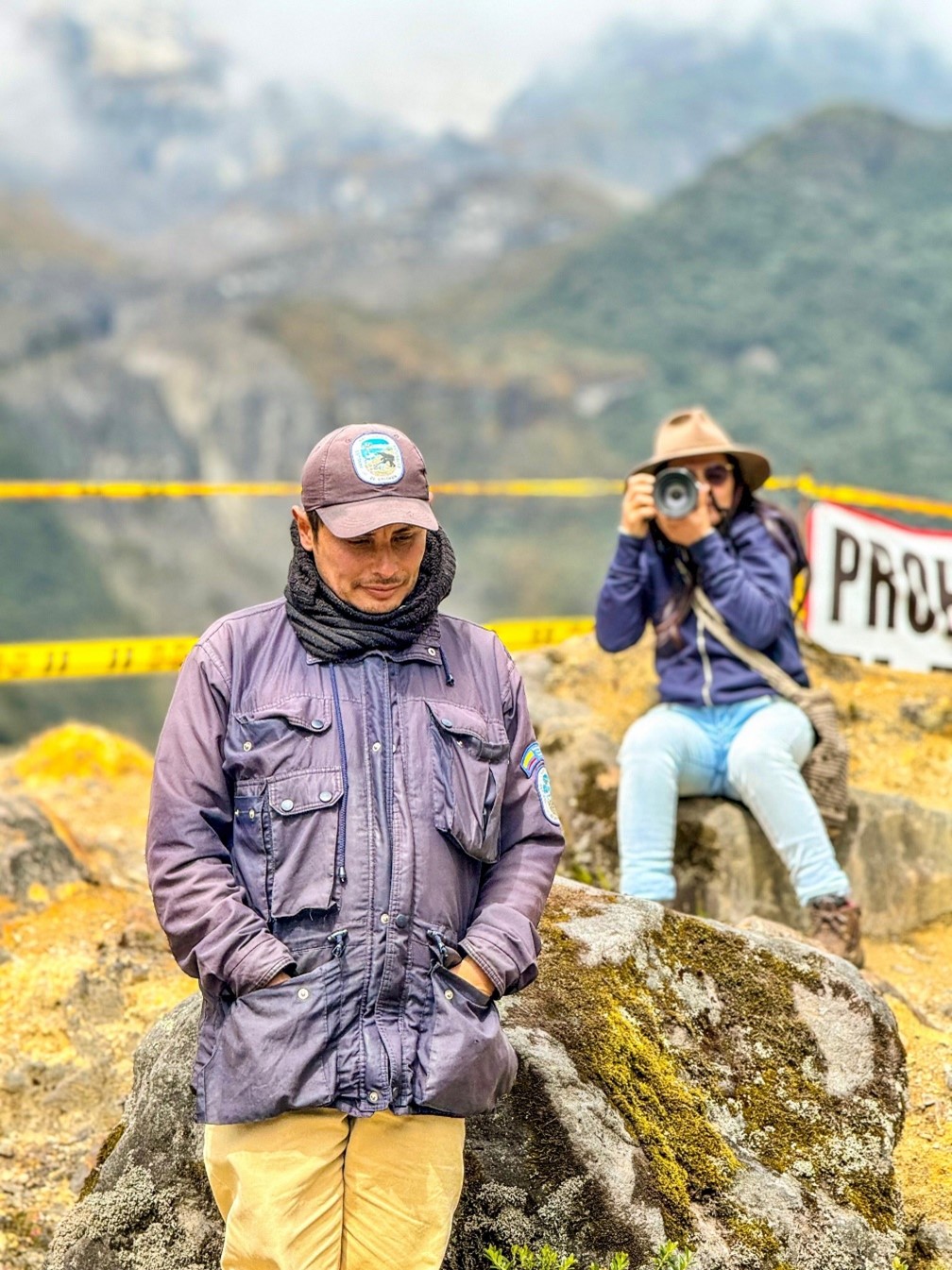
Integrating with Quinta Esencia Taller, whose name itself is an homage to the sensory connection with nature, we embarked on projects critical to ecological restoration and community empowerment. From grant writing to website development and the hands-on removal of invasive species like guadua bamboo, our endeavors were aligned with the tactile essence of Quinta Esencia’s mission to reconnect humanity with the land. Our work, particularly the workshop with students from Isidro Parra, served as a vivid illustration of the course’s impact, weaving academic objectives with the threads of community engagement and environmental stewardship.
The workshops with Quinta Escenia Taller were designed to equip us with both the knowledge and practical skills necessary to implement sustainable restoration techniques. Among the most impactful strategies we learned and applied were:
Rescue of Native Seedlings: One of the key strategies emphasized was the rescue of native seedlings. This approach involves identifying, protecting, and relocating young plants from areas at risk of destruction or degradation to safer sites where they can continue to grow and contribute to the ecosystem’s health. This not only helps preserve biodiversity but also enhances soil stability, reducing erosion risks.
Cloning from Mother Plants: Another innovative technique we explored was cloning from mother plants. This method involves taking cuttings from healthy, mature plants and nurturing these cuttings to grow into new plants. This strategy is particularly valuable for propagating species that are known to be effective at preventing soil erosion, ensuring that these beneficial plants can be distributed more widely across erosion-prone areas.
Natural Regeneration: We also focused on encouraging natural regeneration, a process that allows the ecosystem to heal itself over time. By protecting areas from further disturbance and providing the necessary support such as removing invasive species and reintroducing native plants, we can facilitate the natural recovery processes of the environment.
My favorite aspect of the trip was discovering saplings of native plant species and participating in their planting, contributing to the restoration of a tropical forest area affected by deforestation driven by erosion and increased rainfall, a consequence of the ongoing impact of climate change.
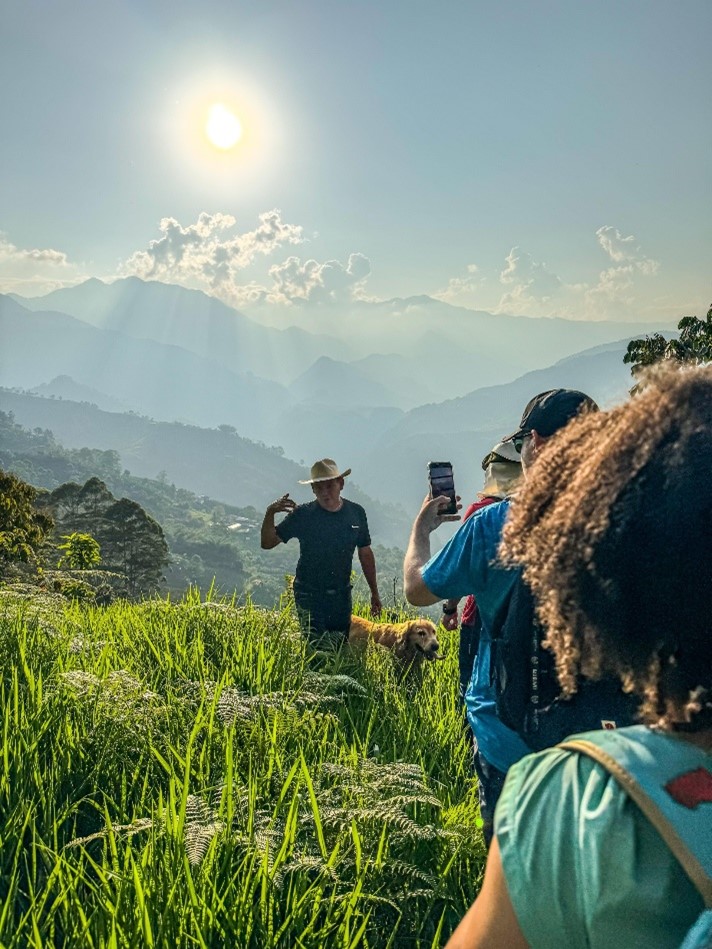
As I reflect on our transformative journey, the Sustainable Development & Ecological Restoration course emerges as a profound call to action. It beckons us to envision and work towards a world where sustainable development transcends ideals to become a tangible reality, achieved through the collective effort of communities, educators, and students. My experience in Líbano has imbued me with a renewed sense of responsibility and hope, inspiring me to continue being a catalyst for change, embodying the principles of ecological restoration and sustainable development in every endeavor. This journey, with its blend of academic rigor, heartfelt humanity, and the personal growth it fostered, is a story of how education can indeed transform the world, one community at a time.
My experience in Líbano has imbued me with a renewed sense of responsibility and hope, inspiring me to continue being a catalyst for change, embodying the principles of ecological restoration and sustainable development in every endeavor
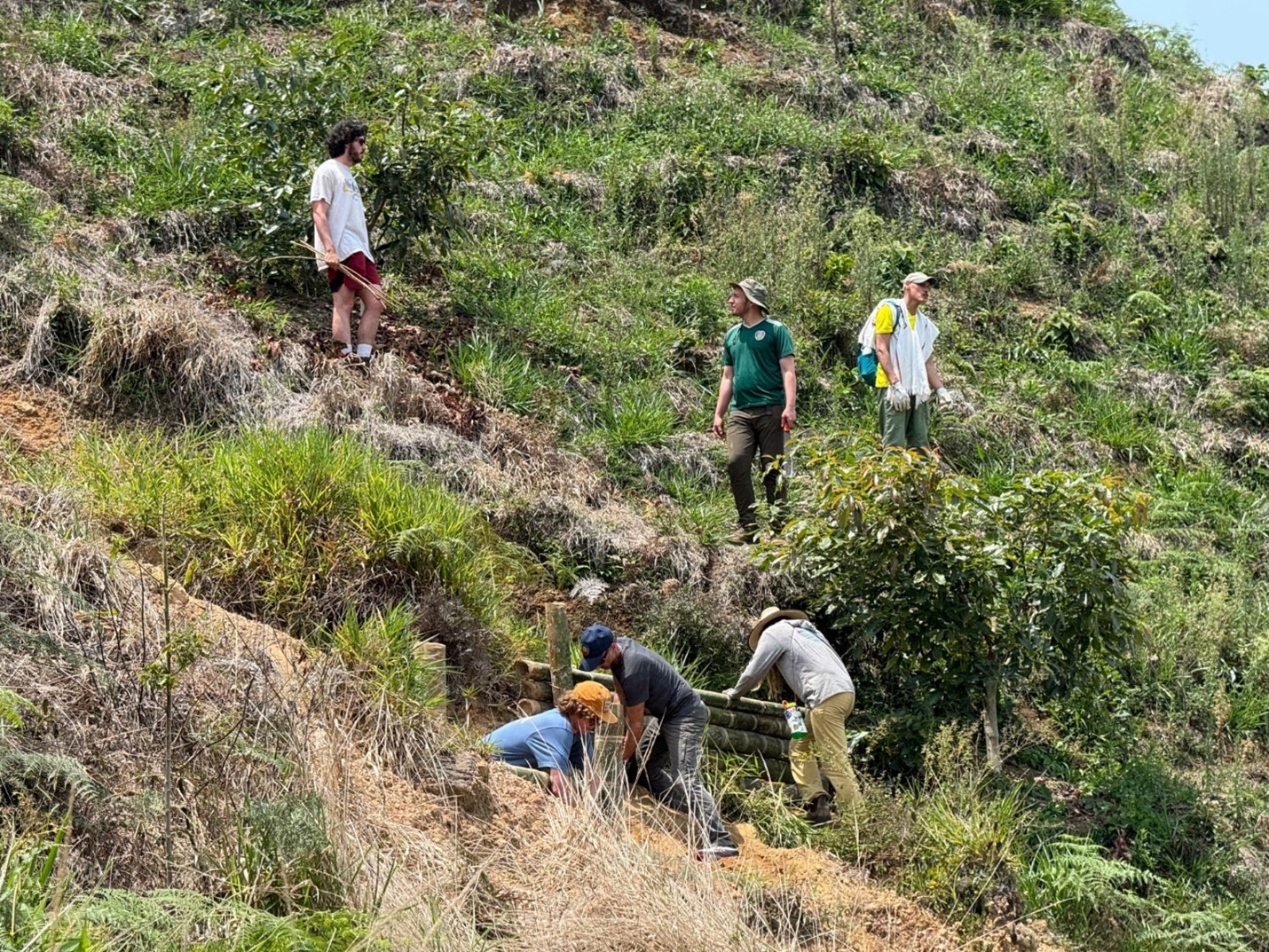
I loved the trip! My Spanish really improved and I learned a lot about Colombian culture.
For More Information
Experiential Learning
experientiallearning@middlebury.edu
